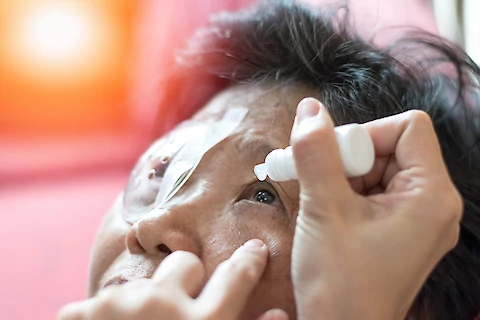
Caring for our eyes is an important part of overall health, particularly as we age. As we enter our golden years, it's crucial to familiarize ourselves with various eye conditions, especially cataracts and glaucoma. These are two common conditions that often impact seniors' eye health. With a clearer understanding of cataracts and glaucoma, what their symptoms are, and how we can potentially lower the risk of developing these conditions, we can find them easier to manage should they develop.
Understanding Cataracts
Cataracts are a common eye condition characterized by the clouding of the lens in the eye. It often leads to blurry or hazy vision. It can feel similar to looking through a fogged-up window, making daily activities such as reading or driving quite challenging. While it's a condition that predominantly affects seniors, certain risk factors make some people more susceptible. Prolonged sun exposure, smoking, obesity, high blood pressure, and even certain medications make it more likely that you'll develop cataracts.
Understanding Glaucoma
On the other hand, glaucoma includes a range of eye conditions that cause damage to the optic nerve. This nerve is crucial for good vision. The damage is often caused by unusually high eye pressure. It can lead to gradual, irreversible vision loss if not treated early. It's sneaky, often showing no symptoms until significant damage has occurred. Risk factors for glaucoma include age, family history, race (people of African, Hispanic, or Asian heritage are at greater risk), and certain medical conditions like diabetes.
Importance of Regular Eye Check-Ups
Regular eye check-ups are incredibly important, especially as we get older. Both cataracts and glaucoma can be detected through routine eye examinations, enabling early detection. Early detection can lead to prompt treatment, potentially preventing or slowing down vision loss. Regular eye exams are key to catching these conditions in their early stages and managing them effectively from there on out.
Prevention and Treatment
Preventing these conditions may involve incorporating healthy lifestyle choices. A diet rich in vital nutrients, regular exercise, and refraining from smoking can lower your risk of developing these eye conditions. If you have other health conditions like diabetes or high blood pressure, managing them effectively can also decrease your risk.
If cataracts or glaucoma are diagnosed, treatments are available. Cataracts can often be effectively treated with surgery to replace the cloudy lens with an artificial one. Various treatments for glaucoma aim to reduce the pressure in the eye and can include eye drops, oral medications, laser treatments, or surgery.
Seek Medical Help for Vision Changes
Remember, it's essential to seek advice from healthcare providers if you suspect any changes in your vision. They can provide professional guidance and discuss potential treatment options, ensuring the best possible care for your eyes.
Contact Senior Helpers Dover DE
Understanding cataracts and glaucoma, recognizing their symptoms, and knowing the associated risk factors can go a long way in promoting eye health. And it all starts with regular check-ups. If you reside in Dover, Middletown, Seaford, Georgetown, or Lewes and need professional eye care, Senior Helpers Dover DE is here to assist. Make your eye health a priority and contact us today.